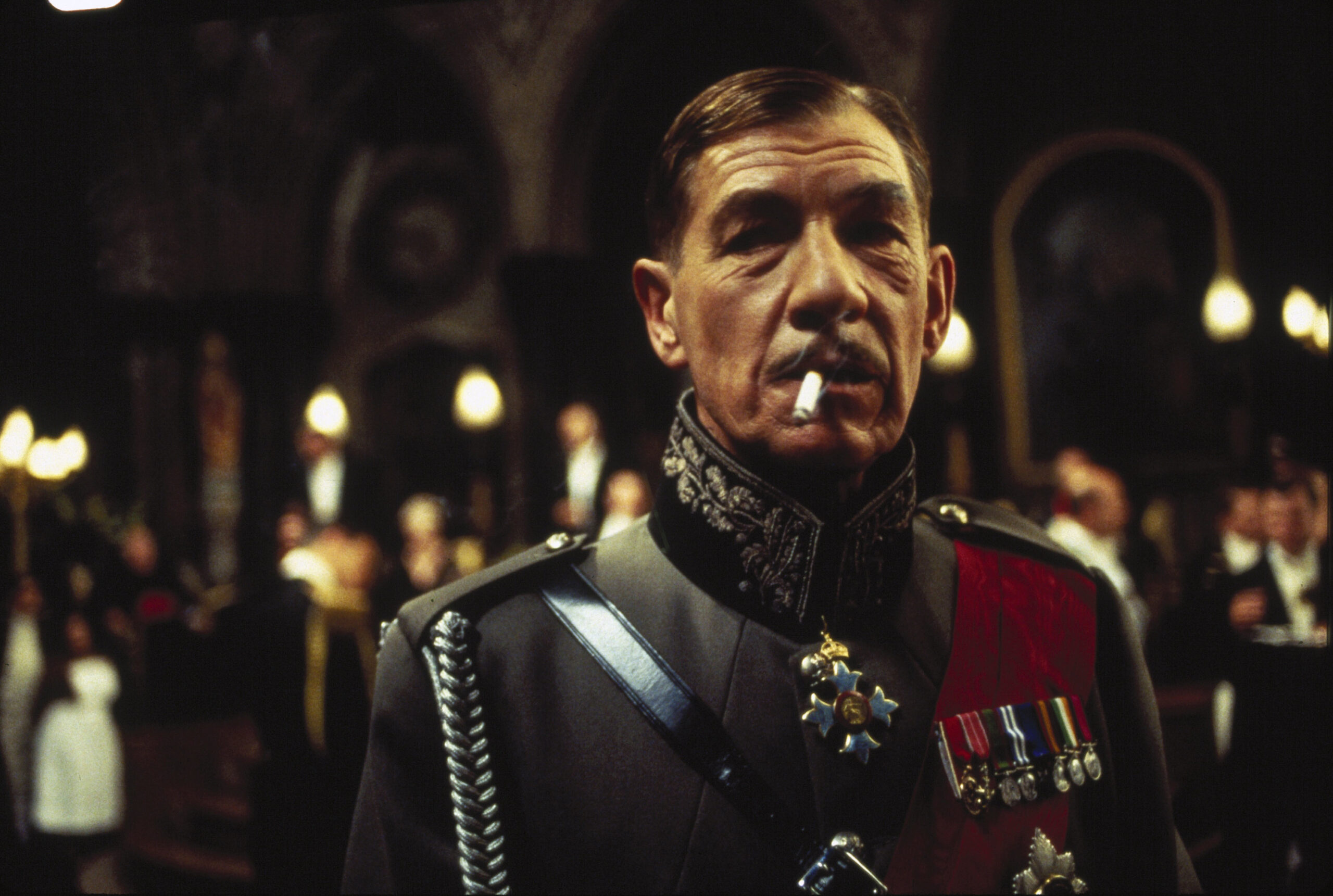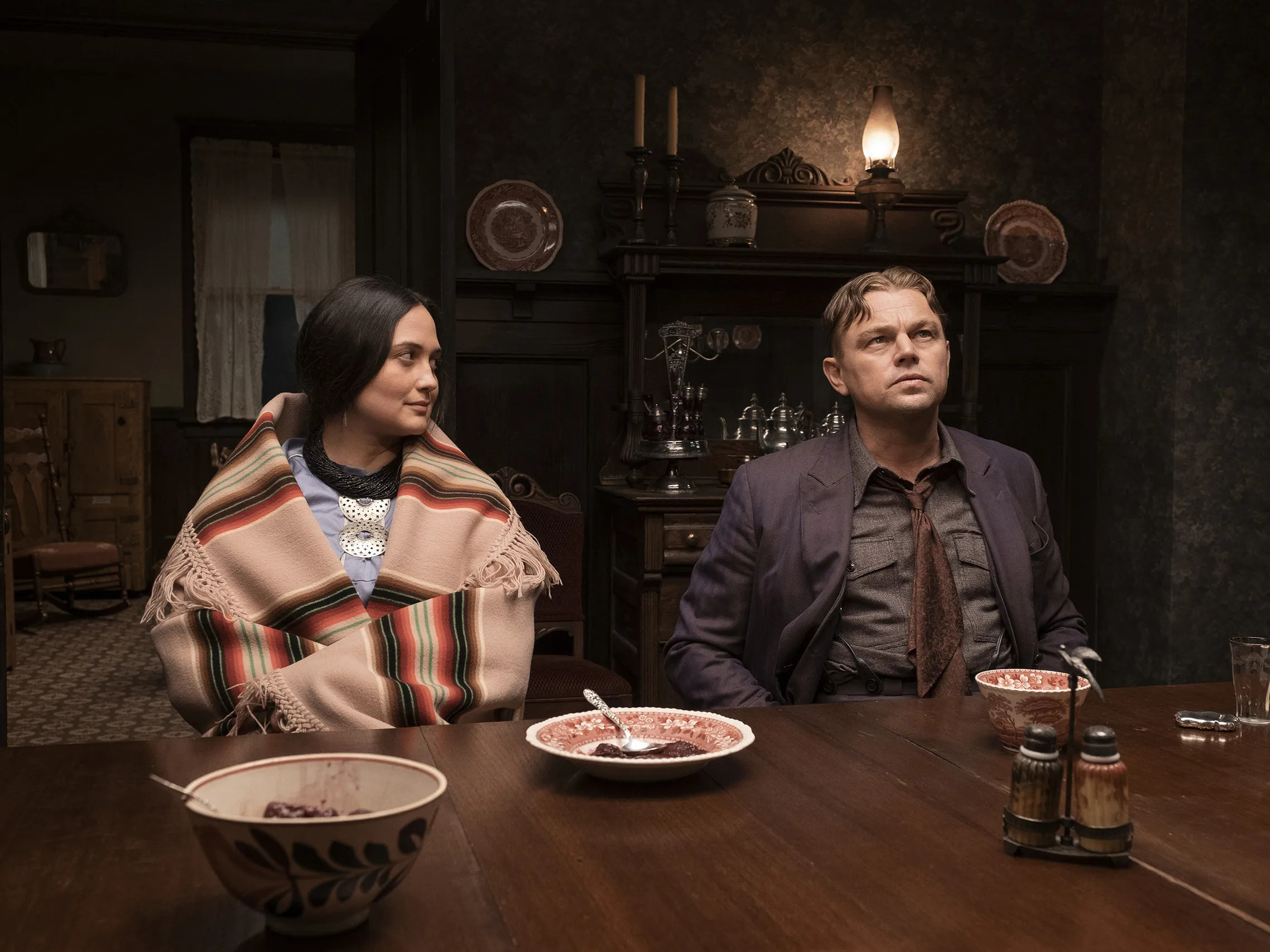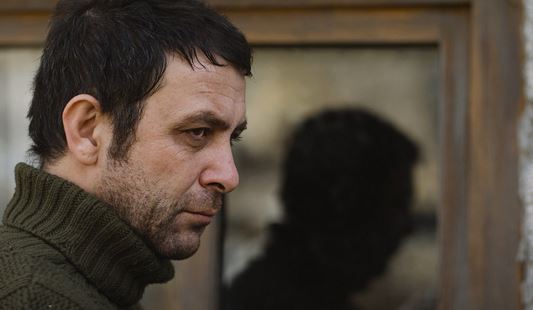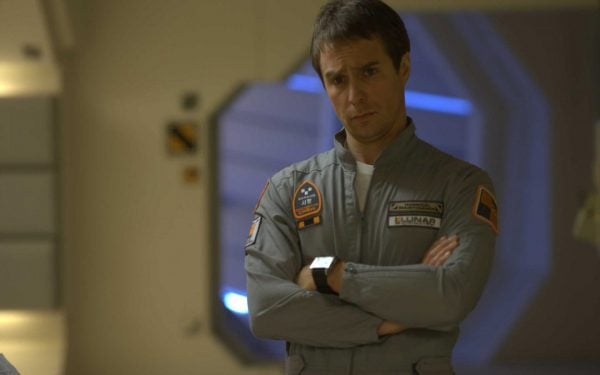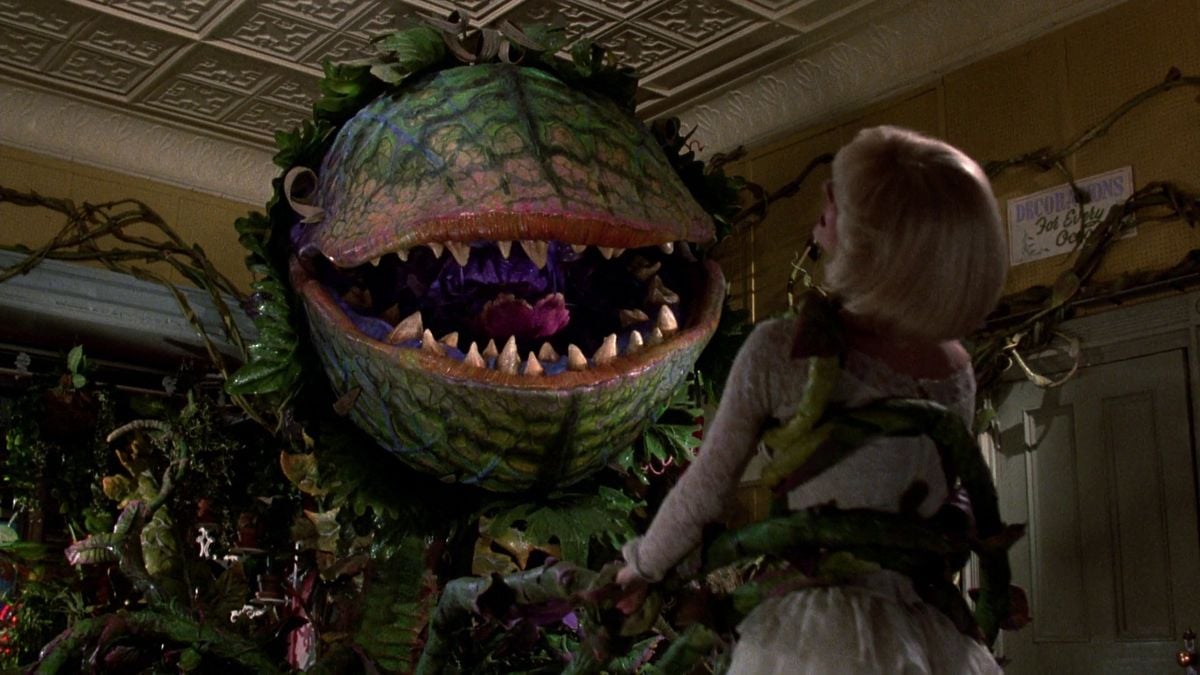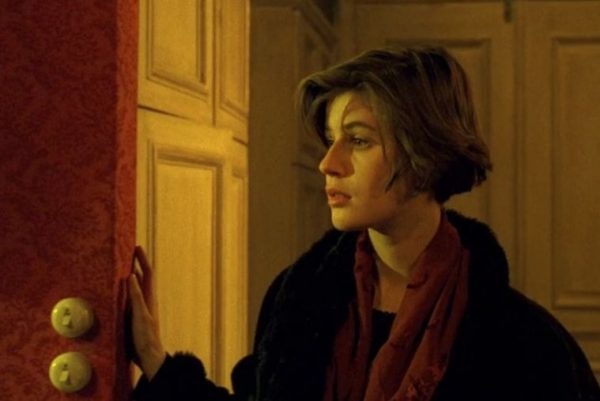
50 Best Mind-Bending Movies to Watch Now
April 8, 2025
Share:
Looking specifically for a “mind-bending” or “mind-blowing” movie on your streaming service of choice might not always give you what you’re looking for. Chances are you’ll be shown movies that have some sort of twist to them, usually something dealing in the realms of sci-fi, fantasy, or psychological thriller. But we want to help expand what these movies can be. At the end of the day, you’re looking for something that can genuinely surprise you and leave you thinking about things in a different way. And in this list we’ve compiled of little-known but highly-rated films, we hope to show that complex movies that leave you feeling dazed can come from any genre—and don’t need to rely on a cheap twist to be good.
Read also:
31. Richard III (1995)
Genres
Director
Actors
Moods
One of Shakespeare’s most indelible works is brought roaring to life in this explosive adaptation. The action is transposed from the 1400s to brutalist 1930s England, with the bloody civil war between the houses of Lancaster and York being waged by tanks and planes instead of cavalry. The switch isn’t merely cosmetic, though: in an inspired move, usurper Richard is reimagined here as the fascist head of an army of Nazi-esque Blackshirts (an analog of real militant far-right leader Oswald Mosley). Ian McKellen, who also co-wrote the screenplay, gives an odious but brilliant performance as the titular Machiavellian schemer who will stop at nothing to seize the crown, even betraying his own blood.
McKellen is joined by a gluttony of acting talent: Maggie Smith plays the King’s despairing mother, Annette Bening and Robert Downey Jr. are the unfortunate American queen and her brother, while the likes of Jim Broadbent, Bill Paterson, Kristin Scott Thomas, and Jim Carter fill up the royal court. All the richness of Shakespeare’s original writing is retained, charging the performances and the film around them with a grand sense of drama. Peter Biziou’s ostentatious cinematography is a perfect frame for it all, and helps cement this as much, much more than a piece of filmed theater.
32. Killers of the Flower Moon (2023)
Genres
Director
Actors
Moods
Martin Scorsese’s Killers of the Flower Moon isn’t a whodunnit; in fact, it’s closer to a who-didn’t-do-it. We know from the very beginning who is responsible for committing the brutal serial murders of wealthy Osage Native Americans in 1920s Oklahoma that the film chronicles: pretty much every single one of their white neighbors, spearheaded by William Hale (a skin-crawling Robert De Niro). Scorsese, most often associated with mafia stories, stealthily suggests here that the most dangerous gang of all is the one into which all these perpetrators have been born. That’s an idea he investigates through the confused loyalties of Leonardo DiCaprio’s Ernest Burkhart, the Judas-like husband of Mollie (movie-stealer Lily Gladstone), an Osage woman who owns lucrative oil headrights that William wants to fatten his own pockets with. This searing epic — based on a harrowing chapter of real American history — is an unsparing and self-implicating look at complicity and greed in the eye, a monumental movie that cements its maker as one of the greatest to ever do it.
33. Winter Sleep (2014)
Genres
Director
Actors
Moods
An absolutely beautiful film about superficiality, arrogance, and heartbreak. It focuses on the life of Aydin, a retired actor who now lives very comfortably managing a small hotel and a number of other small properties. Throughout the film Aydin’s image shifts as he tackles the problems of his rather typical life. Having said this, there is nothing else typical about this film. It captures human relationships with an almost frightening precision. It almost feels as though you have an inside view into someone’s actual life as Aydin battles it out with his sister Necla and his young wife Nihal. To me this is easily one of the best dramas of the decade, and if you so much as like movies that focus on humans and their interactions, it will be that for you too. Nuri Bilge Ceylan will make 3 hours pass more quickly than they ever have before.
34. End of Watch (2012)
Genres
Director
Actors
Moods
First off you have to remember it is the same writer as Training Day. Then you have to believe that he must have gone to a joint training camp between the Taliban and Mexican Cartels or something since Training Day to come up with such a tense, unpredictable script. But End of Watch is more than that. It is warm and sweet (yes), and a great showcase of Gyllenhaal and Pena’s talents — which thanks to a documentary-style cinematography, and the actors’ 5-month immersion program with actual LA cops, make for a very authentic, rich, and overall exciting film.
35. 35 Shots of Rum (2008)
Genres
Director
Actors
Moods
This bittersweet film about a father and a daughter marks one of the more tender spots in Claire Denis’ brilliant filmography. Frequent collaborator Alex Descas plays Lionel (the father), while Mati Diop, now a director in her own right, plays Josephine (the daughter.) The film captures the two at a crossroads, with their closely-knit relationship tested as Josephine grows closer to her boyfriend, and Lionel must face the possibility of finally letting her go.
A melancholy lingers in the air as we learn more about their lives and the small community of neighbors and coworkers in their orbit. Meanwhile, the film’s climax holds a mesmerizing sequence set to the Commodores’ Nightshift, which has to rank as one of the best needle drops in cinema from a director who already has an all-timer under her belt. (see. Beau Travail)
36. Streetwise (1984)
Genres
Director
Actors
Moods
Martin Bell documents the lives of youth living in the streets of Seattle in the early eighties with profound empathy. It’s a type of filmmaking that doesn’t judge or condescend, but seeks to capture the humanity of its subjects. The result is a film bursting with life and laughter, and although tragedy lurks around every corner it isn’t over-sentimentalized or exploited, taking a backseat to the compassionate depiction of everyday moments.
The audience is left to its own devices to pull together the extent to which these youth have been failed by a broken safety-net and the expired promise of an American dream. These ideas rise to the surface naturally and serve as a testament to the power of the documentary form when it’s loosened from the grip of mawkish narrators and sugary moralizing.
37. Moon (2009)
Genres
Director
Actors
Moods
Moon is a sci-fi movie that doesn’t care that it’s a sci-fi movie. It’s not about space exploration or aliens. It’s about a man struggling to understand what and who he is and the dehumanizing effect of industrialization. Moon leaves you with a pit in your stomach and an incredible feeling of melancholy. It is perfectly acted by Sam Rockwell and the voice of Kevin Spacey. Moon keeps you guessing and deeply enthralled. A true masterpiece I would recommend to anyone, whether they are sci-fi nerds or just movie lovers.
38. It’s Such a Beautiful Day (2012)
Genres
Director
Actors
Moods
Two-time Oscar nominee Don Hertzfeldt crafts this provocative film in the most skillful way. With only stick figure drawings and some stock footage, he compellingly walks you through the crumbling mind of a man. It is funny. It is sad. It is unsettling. Unlike most movies – or perhaps any movie – there is no point in the film where you feel safe. Unpredictable. Engrossing. Disturbing. By the end of it, you will not be sure what you’ve just seen, but you will feel as if it has changed you. **Personal suggestion: do not watch alone late at night**
39. Little Shop of Horrors (1986)
Genres
Director
Actors
Moods
With a premise straight out of a cheesy sci-fi B-movie, you wouldn’t expect Little Shop of Horrors to be a bona fide spectacle, and yet its tale of a wish-fulfilling yet bloodthirsty plant remains as thrilling and intense as ever. More importantly, Alan Menken and Howard Ashman’s rock-musical songs remain boisterous and theatrical, gleefully performed by Rick Moranis, Ellen Greene, Steve Martin, and Levi Stubbs. And buried underneath all this is a comedy with a heart of darkness and a legitimately disturbing morality tale.
Musicals and horror movies are genres that typically cater to a more niche audience, but Little Shop of Horrors should be fun enough to draw anybody in, thanks to the film’s impressively tactile sets, director Frank Oz’s knack for physical comedy, and animatronic special effects that look better than most CGI creations today. As both a horror movie monster and a massive puppet, the vicious plant named Audrey II is entirely worth the price of admission, no matter which version of the film you seek out.
40. The Red Turtle (2017)
Genres
Director
Actors
Moods
Co-produced by the legendary Studio Ghibli and directed by Dutch animator Michaël Dudok de Wit, The Red Turtle is a tale about a man shipwrecked on a desert island whose fate is changed upon meeting a giant turtle. Beautiful images are pulled together and combined with the film’s delicate symbolism about humanity and nature, in a story told with remarkable restraint. The only sound in the movie is that of nature and the film’s beautifully relaxing score. Using only simple ingredients, The Red Turtle is an enigmatic, captivating, and highly-recommended gem that, after all, encompasses life itself.
Comments
Add a comment
Ready to cut the cord?
Here are the 12 cheapest Live TV streaming services for cord-cutting.
More lists
Lists on how to save money by cutting the cord.
Curated by humans, not algorithms.
© 2025 A Good Movie to Watch. Altona Studio, LLC, all rights reserved.
